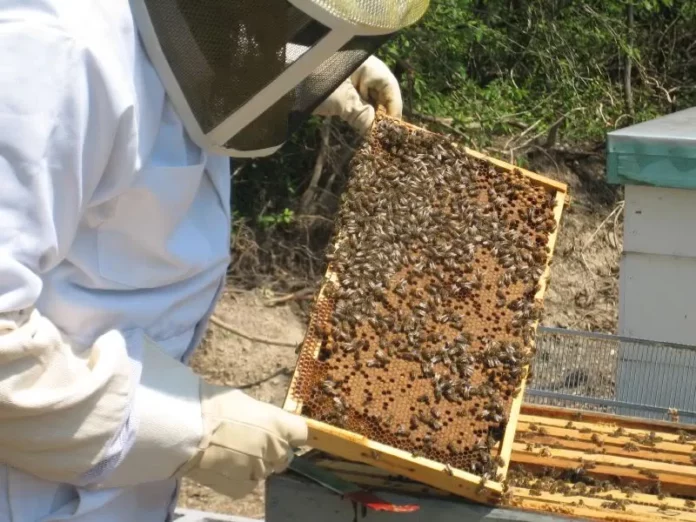Kenya has a huge potential for the production of hive products especially in the arid and semi-arid parts of the country.
However, poor beekeeping technologies have made beekeeping unviable given the changing climate of increased temperatures and low moisture situations.
Increased temperatures and low moisture situations mean vegetation loss which scares bees away as the ecosystem is not favorable for them to thrive.
This has not only affected honey production but also put the country’s food security at risk given bees are important pollinators of crops, pastures, and trees, thus contributing to food security.
Furthermore, many bee farmers are still unaware of the modern beekeeping practices that can help them increase production and address the local deficit which has seen the country rely on imports.
The demand for honey in Kenya has been rising with each passing year but sadly the local market can only produce 20 percent of the demand.
These realities have pushed Savannah Honey, a Kenyan social enterprise that trains interested beekeepers on modern beekeeping to step up with ways to maximize Kenya’s potential.
Savannah Honey’s affordable ‘Bee Venom Honey’ with medicinal value for your health
The platform has been at the forefront of empowering interested beekeepers by offering training on modern beekeeping.
Among the game-changer innovations the firm has introduced is the use of Astic, an advanced bee lure, to boost bee population.
The new product has proved to be the real deal in maintaining the bee population especially in areas hardly hit by drought.
”We came up with this technology upon realizing that the bee population in beekeeping counties is dwindling. In hot areas, for instance, the hives are taking too long before they get colonized,’’ says Kyalo Mutua Maveke, the CEO of Savannah Honey.
Mutua observes that Astic has proved to be a more reliable product in addressing the decline in bee population compared to the traditional lemongrass oil.
”In the past, farmers have been using lemongrass oil to attract bees. This is put from the entrance of the hive to attract bees from afar. Our innovation, Astic, has proved to be more reliable in addressing the global decline in bee population’’ he adds.
Savannah Honey observes that honey yields are low on traditional hives compared to modern Langstroths, which also give healthy honey in terms of handling and harvesting.
The firm provides farmers with Langstroth beehives and other beekeeping equipment and helps them in the management of the apiaries, provision of bees, as well as technical support and marketing of the honey.
The installation of the hives is done at a free cost and incorporates citations in relation to the direction of the wind to attract bees.
”The deviation of bees is strongly affected by wind speed and direction. Strong winds may affect bees such that they may drift from their usual routine paths.”
”For hives that take too long to be colonized, we do colony division, a process that entails analyzing the population.’’ Adds Maveke.
According to Maveke, other factors that play a significant role in marinating bee population is the health of the queen. he notes that a healthy queen should lay between 1,500-2,500 eggs per day.
”Sometimes they become dormant and to curb this situation we superimpose to get an agile queen’’ he says.
The firm is calling on more farmers to venture into modern beekeeping to enjoy the high profits in this business.
In the Kenyan market, for instance, one kilo of honey is priced at Sh700-Sh1,500 while in the Arab market, a jar of honey can fetch almost double this amount, between Sh2000-Sh3500.
Savannah Honey can be Contacted via +254 724 052 975 / [email protected] / www.savannahhoney.org










